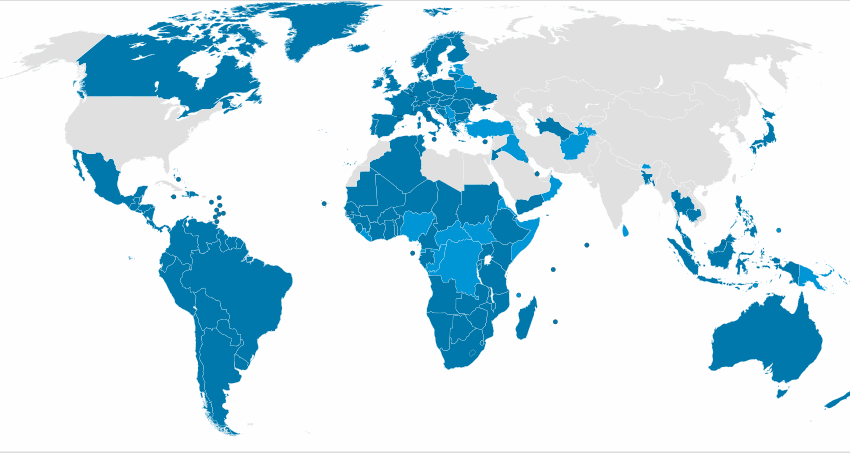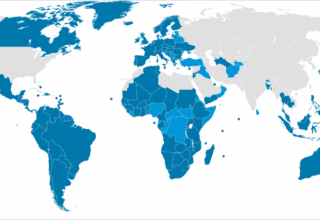
It seems like the invasion of Ukraine by Russia has drastically shifted the security dynamics in Eastern Europe and has demonstrated how modern wars will be waged. In particular, the conflict has shown the effectiveness of landmines as a defensive tool in slowing enemy advances. Due to the indiscriminate nature of landmines, 160 countries ratified the Ottawa Convention which bans the use, stockpiling, production, and transfer of anti-personnel landmines to prevent civilian casualties. Ukraine, who is a signatory to the Treaty, nonetheless, has made effective use of these devices in its defense against Russian forces, which has prompted other neighbouring States of Russia to reevaluate their stance towards the utilisation of these weapons. Notably, due to increasing security concerns, Poland, Estonia, Latvia, and Lithuania are considering withdrawing to enhance their defense against potential Russian invasion.
This decision illustrates the tension between humanitarian commitments and national security needs in the evolving European security landscape and there are a number of factors contributing to this shift and shaping the current geopolitical reality. Firstly, Russia’s ongoing invasion of Ukraine has highlighted the effectiveness of entrenched defenses, including minefields, in slowing down enemy advances. Moreover, the threat of a potential attack by Russia or its ally Belarus, has put States that share borders with them, such as the Baltic States and Poland, in a rather vulnerable position. Despite NATO’s strong presence in these countries, landmines are seen as an additional defensive layer in case of a sudden attack, potentially granting NATO allies more time to develop a stronger coordinated response.
It is undeniable that Landmine technology offers major military, strategic and defensive advantages in case of an invasion and modern landmine technology, such as remotely controlled or self-neutralizing mines, could provide a safer alternative while maintaining its deterring factor. Thus, without such deterrents, these countries may face increased military vulnerability in case of an incursion. However, the use of Landmines in previous conflicts has yielded a large number of long-term civilian casualties, even decades after conflicts end, which raises additional concerns regarding potential reputational damage for countries considering to veer off NATO’s commitment to ethical warfare. Therefore, it might be worth considering alternative deterrents, such as increased troop deployment or defensive barriers, which could mitigate security risks without resorting to the use of mines. Furthermore, withdrawing from the Ottawa Convention could strain relations with key allies in the EU and NATO, many of whom are strong advocates of disarmament and the move could also weaken the broader international effort to eliminate landmines by setting a precedent for other states to reconsider their commitments. Despite these challenges, diplomatic considerations must be balanced with military preparedness as it remains imperative to consider the ramifications of this shift for the international community.
Even though some countries are considering and pushing to withdraw from the Ottawa Convention, there are other options worth exploring that do not involve falling back on international commitments. In that regard, it is essential to encourage the modernisation of defensive strategies. For instance, rather than outright withdrawal, countries concerned about the limitations on the use of landmines could push for amendments or exemptions within the Ottawa Convention to allow the use of advanced, remotely deactivatable landmines. Moreover, it is urgent to increase NATO fortifications, including anti-tank barriers and drone surveillance, as alternative defensive mechanisms, particularly in its Eastern flank while also expanding military training and readiness programs for rapid-response scenarios instead of relying on static defenses. Notwithstanding potential military modernisation programmes, it is also necessary to consider diplomatic and multilateral approaches. With regards to that, States should advocate for NATO discussions on revising the convention’s provisions to allow for controlled defensive use in high-risk regions. Additionally, Eastern European and Balkan countries facing security concerns should attempt to further strengthen alliances within the EU to ensure collective security measures are reinforced without needing to resort to landmines. Lastly, it is imperative to ensure that in case of an armed conflict, war is waged in the most ethical way and, therefore, States should work with international humanitarian organizations to develop safe, ethical defensive technologies that comply with both security needs and humanitarian principles.
In conclusion, Poland and the Baltic states face real security concerns, but withdrawing from the Ottawa Convention risks undermining global disarmament efforts. Instead, they should advocate for treaty adaptations, invest in advanced defensive technology, and strengthen NATO’s rapid-response capabilities. Balancing security with humanitarian commitments is crucial and deterrence must not come at the cost of civilian safety or diplomatic isolation. A pragmatic approach can enhance defense while upholding international law and regional stability.
By The European Institute for International Relations















